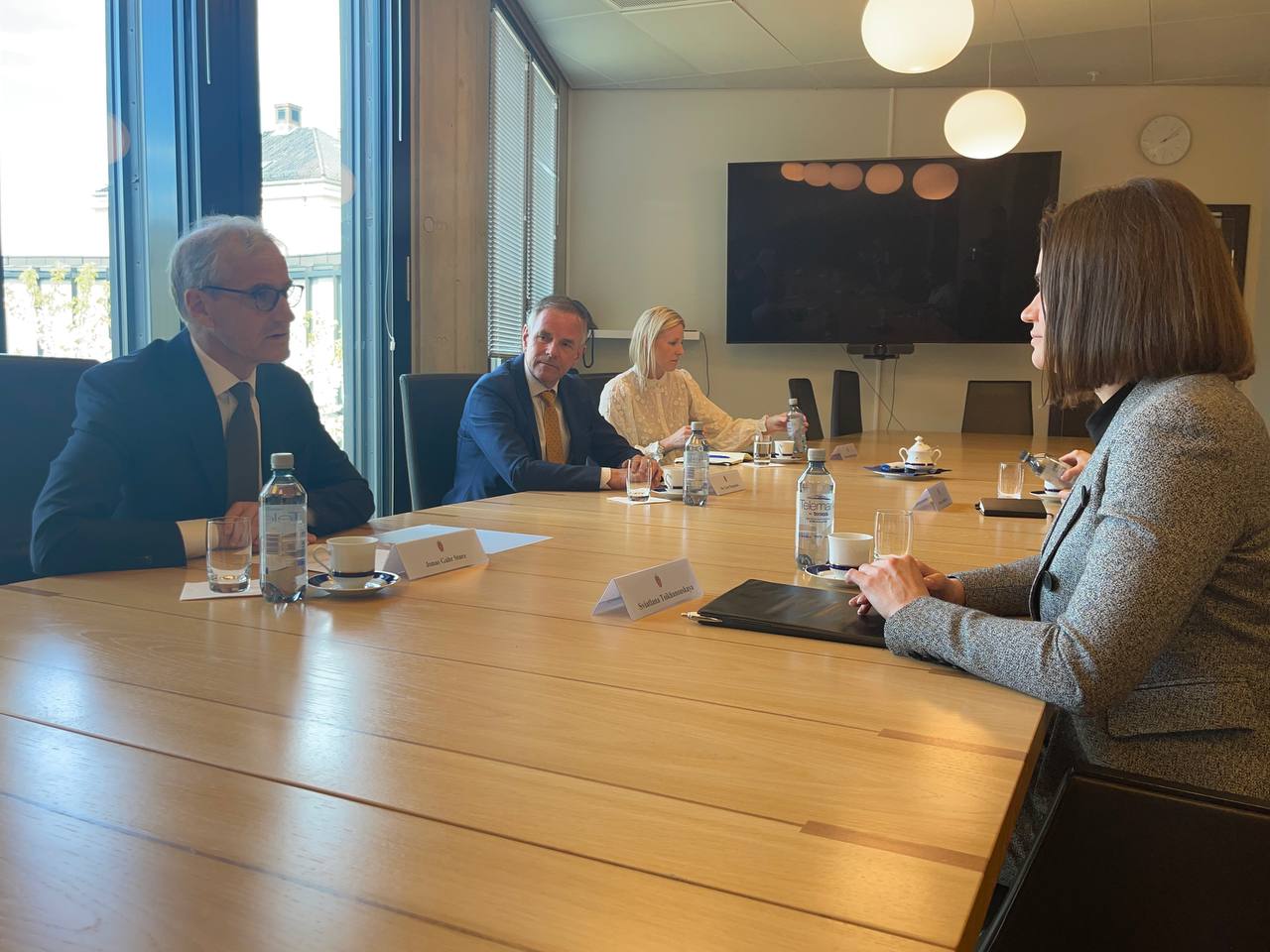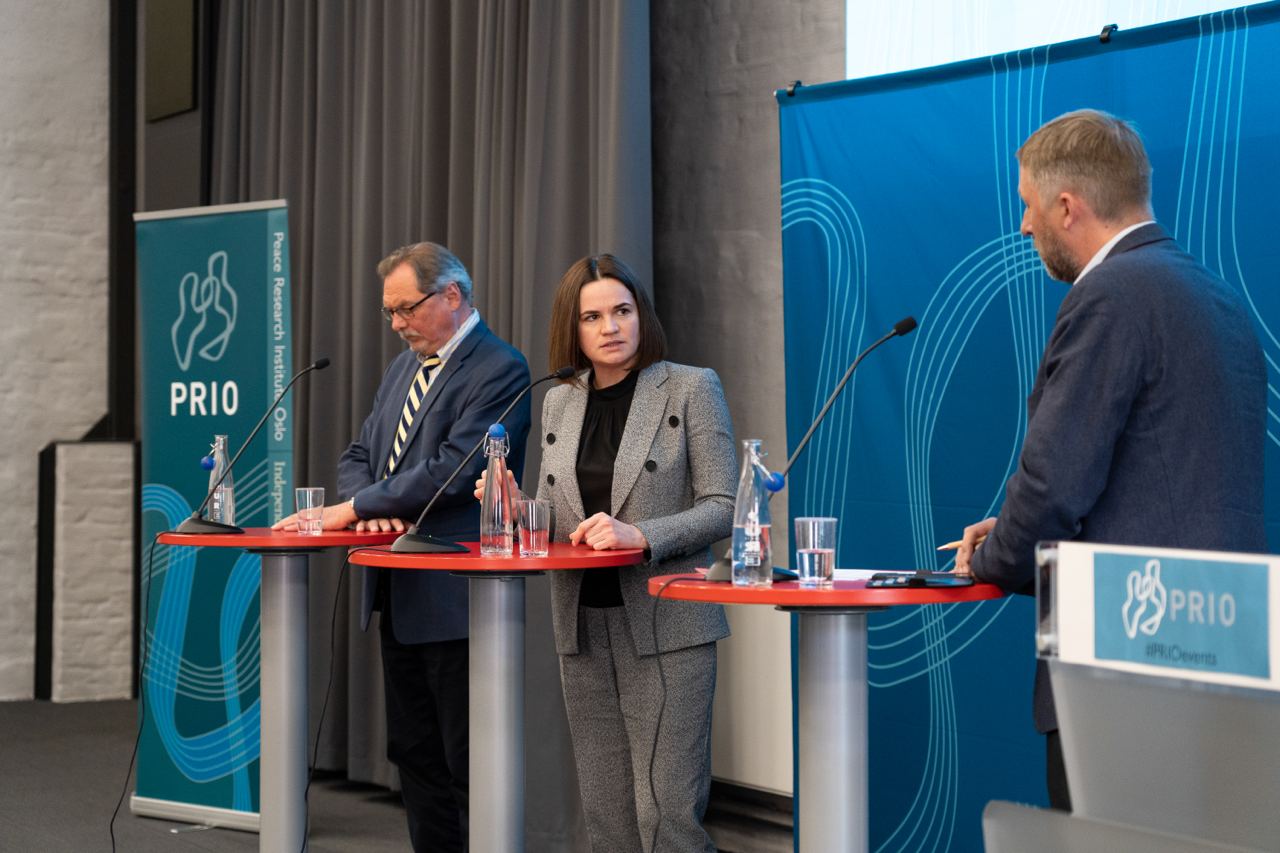On May 6, Sviatlana Tsikhanouskaya completed her formal visit to Norway, where she held meetings with Prime Minister Jonas Gahr Støre, Foreign Minister Anniken Huitfeldt, President of Parliament Masud Gharahkhani, Mayor of Oslo Marianne Borgen, and representatives of the major political parties. She also met with Irish Minister for European Affairs Thomas Byrne, Deputy Secretary General of the Council of Europe Bjørn Berge, the leadership of the Norwegian Confederation of Trade Unions, experts and NGOs focusing on Belarus.
Norway has refused to recognize Lukashenka as president and supported the OSCE Moscow Mechanism against him, as well as the International Accountability Platform for Belarus which gathers evidence of the regime's crimes to submit to international courts. In February 2022, Norway halted buying Belarusian potash fertilizers, to renew purchases only after Belarus holds a free presidential election. In early April 2022, Norway joined the EU sanctions against the Lukashenka regime, and introduced national sanctions, banning transit through the territory of Belarus, as well as the sale of currency and financial transactions with the regime. The latest sanctions were imposed for Lukashenka's involvement in the war against Ukraine.
Sviatlana Tsikhanouskaya expressed the hope that Norway will become a strategic ally of the Belarusian people, and noted that Belarus, after the democratic transition, counts on Norwegian investment and increased trade with the country, especially in the energy and fertilizer sectors.
In the result of the visit:
– Ms. Tsikhanouskaya handed over to the Norwegian government requests from the Belarusian diaspora, the Belarusian Medical Solidarity Foundation, and the Belarusian Council for Culture to support refugees from Belarus, cultural projects, and Belarusian medics working in Ukraine. Ms. Tsikhanouskaya also presented the proposals for a strategy to pressure the regime from the National Anti-Crisis Management.
– Norwegian universities will admit students from Belarus, as well as provide financial assistance to those who need it. This semester, 50 students from Belarus are studying in Norway. Norway will also continue providing financing to Belarusian students at European Humanities University in Vilnius. Earlier, universities in the Netherlands had also announced the admission of Belarusian students.
– The Belarusian democratic forces and Norway held the first consultations on the expected hearings on Belarus at the UN Security Council. Ireland and Norway, both non-permanent members of the body, are working on the issue together. At the hearings, the discussion is planned on the regime's involvement in the war, repressions in Belarus and the country’s nuclear status.
– Speaking at the European Conference organized by the Council of Europe in Kristiansand, Ms. Tsikhanouskaya stressed that Belarus would like to join the Council of Europe. Until then, Belarus must be represented by the democratic forces, not the regime.
– Upon Sviatlana Tsikhanouskaya’s visit, the Peace Research Institute, an independent international institute for peace and conflict research, primarily arms control and disarmament issues, discussed the Anti-War Movement in Belarus. The experts noted that the Belarusian partisan Anti-War Movement and anti-war sentiments in Belarusian society helped thwart the Russian army's offensive on Ukraine from the north.
– Norwegian trade unions will raise the issue of unprecedented repression against Belarusian trade unions at the next congress of the International Labor Organization. Ms. Tsikhanouskaya spoke on the arrest of the Belarusian Congress of Democratic Trade Unions leaders and trade union members Aliaksandr Yarashuk, Siarhei Antusevich, Mikalai Sharakh, Hienadz Fiadynich, and others. ILO member states are considering the use of paragraph 33 against Belarus for systematic repression of workers.
– The President of Parliament agreed to consider forming a Friends of free Belarus group to keep Belarus on the agenda of Norwegian politics and effectively seek the release of political prisoners.
– Norwegian NGOs will continue cooperation with Belarusian journalists, especially in providing technical and technological support, and human rights defenders.









